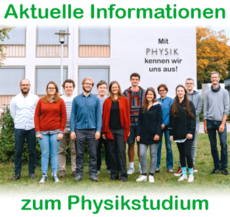Research
Focus areas of our research comprise:
- Functionalized soft composite materials.
- Magnetic and liquid-crystalline soft matter.
- Active suspensions, microswimmers, and self-propelled particles.
- Collective phenomena emerging from the properties of discrete constituents.
- Thermophoretic effects and elasticity.
- Stochastic motion under nonlinear friction.
- Coupling of discrete objects through their influence on continuous background media.
- Weight reduction through hollow deformable inclusions
Central questions that catch our interest include:
- How does the global appearance of a certain system depend on the properties of its individual constituents?
- How does macroscopic behavior emerge from the interactions between many individual micro- or mesoscopic components?
- Can the resulting features of the overall system be modified according to the request for a desired application, possibly even while the system or material is in use?
In order to find answers to these and related questions, we apply, combine, and develop methods of the following kind:
- Discretized modeling of complex many-body systems and materials, in equilibrium and in non-equilibrium.
- Linear and weakly nonlinear stability analyses of static and dynamic behavior, also on a numerical basis.
- Analytical calculations of elastic and hydrodynamic interactions in elastic, viscoelastic, and viscous media.
- Analytical derivation of mesoscopic statistical theories, for instance, Fokker-Planck equations or classical dynamical density-functional theories, including their numerical evaluation.
- Direct simulations of basic particle systems or discretized material models.
- Symmetry-based derivation of macroscopic hydrodynamic continuum theories and their numerical evaluation for selected special cases.
- Linking of mesoscopic models to macroscopic continuum theories.

